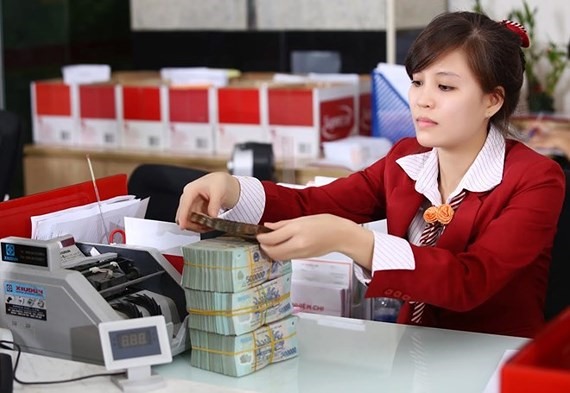The credit growth in November rose 2.8 per cent against the previous month, pushing the total rise in the 11 months of this year to 15.3 per cent.

The credit growth in November rose 2.8 per cent against the previous month, pushing the total rise in the 11 months of this year to 15.3 per cent.
According to the National Financial Supervisory Commission, the government’s financial watchdog, the ratio of medium and long-term loans in the 11 months increased by 12.7 per cent against December last year and accounted for 53.8 per cent of the total outstanding loans.
The rising rate of short-term loans was 18.6 per cent, compared to 15.2 per cent in the 11 months of last year.
The commission also noted that lending in foreign currency expanded 12.3 per cent from the end of 2016, more than doubling the expansion of 5.8 per cent in the same period last year.
Meanwhile, loans in the Vietnamese dong increased 15.6 per cent in the 11-month period, lower than a 16.6 per cent increase in the same period last year, and accounted for 91.8 per cent of total credit.
The commission said that lending for the agricultural sector represented 8.1 per cent of total credit, while that for real estate and construction made up 15.5 per cent, down from 17.1 per cent in 2016, of which 5.8 per cent of the loans were funneled into the real estate industry.
Notably, consumer lending continued at a rapid pace, with growth hitting 59 per cent in the 11-month period, driven mainly by home loans.
The commission said the mobilisation growth slowed to 13.5 per cent between January and November, compared to 16.6 per cent, a year earlier.
Liquidity in the banking system remained stable, buoyed by the State Bank of Viet Nam net injecting VND124 trillion (US$5.46 billion) since the start of the year via foreign currency purchases and open market operations.
The average loan-to-deposit ratio (LDR) of the banking system stood at 86.9 per cent, up from 85.6 per cent at the end of 2016.
Interest rates increased by 70-80 basis points in the inter-bank market, while major banks revised up deposit rates, the commission said. — VNS





